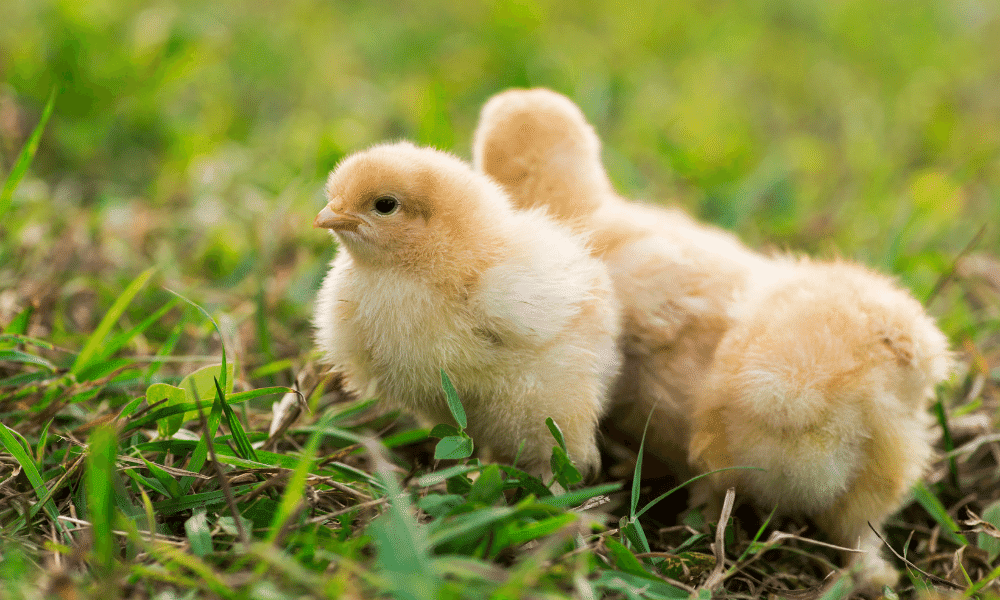Discover the Flemish Giant Rabbit: The Ultimate Guide to the Largest Rabbit Breed
The Flemish Giant Rabbit, often referred to as the "gentle giant" of the rabbit world, is a breed that will captivate your heart with its impressive size and amiable personality. We'll delve into the world of Flemish Giant Rabbits and their origins, physical and personality traits, lifespan, costs, care requirements, and more! Whether you are considering adopting a Flemish giant rabbit or want to learn more about them, we will review the pros and cons. We'll help you determine if the Flemish giant rabbit is the right breed for you.
The Largest Rabbit Breed
In the world of rabbits, size can vary significantly among breeds, with some reaching impressive dimensions. The top three largest rabbit breeds are the Flemish Giant, the Continental Giant rabbit, and the English Lop rabbit.
The Flemish Giant is renowned for its impressive size, with most adults weighing between 14 to 20 pounds. Some show-quality rabbits have even reached over 30 pounds!
The Continental Giant typically weighs 15 to 25 pounds, making it larger than the Flemish Giant in some cases. It is well-known for its friendly demeanor and impressive appearance, often becoming a favorite at rabbit shows.
The English Lop, averaging 10 to 14 pounds, is distinguished by its long, floppy ears and gentle nature. These breeds not only capture the hearts of rabbit enthusiasts but also showcase the remarkable diversity within the rabbit community.
Flemish Giant Rabbit Origin
Originally bred for meat and fur, These rabbits were developed from a mix of large European breeds, including the Belgian Hare. Flemish Giant rabbits were developed in the late 19th century in Belgium and gained popularity for their size and calm demeanor. They were officially recognized by the American Rabbit Breeders Association (ARBA) in 1910.
As the demand for larger rabbits grew, breeders began to focus on enhancing the size and temperament of the Flemish Giant. Today, Flemish Giant rabbits are not only valued for their size but also as beloved pets. If you're looking for a Flemish Giant for sale near me, they are available at various pet stores and local breeders across the globe.
Continental Giant vs Flemish Giant
When comparing the Continental Giant vs Flemish Giant, both breeds are known for their impressive size and gentle temperaments, making them popular choices among rabbit enthusiasts. The Flemish Giant is available in various colors, including gray, sandy, black, blue, and white, while the Continental Giant typically has a more uniform appearance. When considering a Flemish Giant, it's essential to provide a spacious Flemish Giant cage to accommodate their large size and active nature.
While Flemish Giant rabbit lop, lop-eared hybrids involving Flemish Giants exist, purebred Flemish Giants always have upright ears. If you encounter a “Flemish Giant rabbit lop,” it is likely a mix with a lop-eared breed. You might come across one of these when looking for Flemish Giants for sale near me!
Both breeds have a similar lifespan, averaging around 8 to 12 years, but proper care and a healthy diet are crucial for ensuring a long and happy life for your rabbit.
Physical Traits and Characteristics
Size, Weight, and Appearance: How Big Does a Flemish Giant Get?
Flemish Giants are renowned for their impressive size, making them one of the largest rabbit breeds in the world.
Flemish Giant rabbit weight: On average, an adult Flemish Giant weighs 14 to 20 pounds, with some exceptional individuals exceeding this range—particularly those bred for show.
These rabbits can grow up to 2.5 feet long from nose to tail, showcasing their muscular build and sturdy frame. They feature a broad head with large, expressive eyes, and their ears stand upright, sometimes reaching up to 8 inches in length (though rarely 12 inches). Flemish Giants have a well-proportioned body with a deep chest, powerful hindquarters, and strong legs to support their large size.
Flemish Giant Rabbit Colors
Flemish Giant rabbits come in a variety of Flemish giant colors. The most common colors of flemish giants include:
Gray Flemish Giant rabbit: A classic color with a soft, muted tone.
Sandy Flemish Giant rabbit: A warm, golden hue that is quite popular.
Black Flemish Giant rabbit: A striking color that stands out.
Blue Flemish Giant rabbit: A unique slate-blue shade.
White Flemish Giant rabbit: A pure and elegant color.
These colors of Flemish Giant rabbits enhance their appeal, and many breeders specialize in producing specific shades to meet the preferences of potential owners. Among these, the Sandy and Gray Flemish Giant colours are particularly favored for their warm and classic appearances, making them sought-after choices for rabbit enthusiasts. Breeding Flemish Giants colors requires careful selection of Flemish Giant rabbit parents to achieve the desired shades and maintain the breed's quality and characteristics.
Marketplace
You might also be interested in...

Shop for chickens, livestock or other farm goods

About Farm Expo Events

Sell Your Chicks and Eggs
Flemish Giant Personality
Flemish Giant rabbits are known for their gentle and friendly disposition. They are typically calm and easygoing, making them excellent companions for families and individuals alike. Their sociable nature means they often enjoy the company of other pets and humans. The Flemish Giant rabbit personality is characterized by its affectionate and playful nature. They are known to be curious and enjoy exploring their surroundings. With proper socialization, they can be quite interactive and may even learn tricks.
Litter Training a Flemish Giant Rabbit
Many owners wonder, can Flemish Giant rabbits be litter trained? The answer is yes! With patience and consistency, Flemish Giant rabbits can be trained to use a litter box, making them easier to care for in an indoor setting.
Flemish Giant Rabbit Lifespan
Flemish Giant rabbit life span is typically 6 to 8 years, though with exceptional care and good genetics, some may reach up to 12 years.
Flemish Giant Rabbit Cost and Flemish Giant Adoption Options
How much is a Flemish Giant bunny? When considering the cost of a Flemish Giant rabbit, it’s important to note that prices vary significantly based on factors such as location, breeder reputation, and lineage. On average, Flemish Giants cost between $50 to $150, but show-quality rabbits can sell for $300 or more. A full grown blue Flemish Giant rabbit, known for its rarity and striking color, typically ranges between $100 to $300, with its unique appearance driving prices higher.
Flemish Giant Rabbit for Adoption: Finding Affordable Options
Looking for Flemish Giant rabbits for adoption? For a more affordable option, consider adopting from a Flemish Giant rescue or an animal shelter. Adoption not only gives these gentle giants a second chance but also offers a cost-effective way to welcome a Flemish Giant into your home.
Many rescues specialize in finding new homes for these rabbits, and Flemish Giant rabbit for adoption listings can often be found through local shelters, a Flemish Giant rabbit rescue, or the American Rabbit Breeders Association (ARBA). While Facebook groups can provide additional leads, always verify the source to ensure the rabbits are coming from reputable places. Adopting from a Flemish Giant rescue can be a wonderful opportunity to give these lovable rabbits the care and attention they deserve.
General Care and Nutritional Needs
Diet
A proper Flemish giant rabbit diet is crucial for their health and well-being. Their diet should consist of:
Hay: Unlimited access to high-quality hay (such as timothy hay) is essential for the Flemish giant rabbit's digestive health.
Fresh Vegetables: Leafy greens like romaine lettuce, kale, and cilantro should be offered daily.
Pellets: A small amount of high-quality rabbit pellets can be provided, but they should not be the main component of the flemish giant rabbit diet.
Fresh Water: Always ensure that your Flemish giant rabbit has access to clean, fresh water.
Shelter Requirements
When it comes to housing, a Flemish giant rabbit cage should be spacious enough to accommodate their size. The best indoor cage for Flemish giant rabbits should be at least 4 feet long, 3 feet wide, and 3 feet high. However, larger flemish giant rabbit cages are always better, as these rabbits need room to move around and stretch. For outdoor housing, a Flemish giant hutch should be secure and protected from predators. flemish giant rabbit hutch should also provide shade and shelter from the elements.
Temperature and Climate Requirements
Flemish Giant rabbits are more tolerant of cold than heat but should be protected from temperature extremes. While they thrive in moderate climates, they can tolerate temperatures as low as 40°F with proper shelter. However, temperatures above 85°F can cause heat stress, so provide plenty of shade and fresh water in warmer months.
Health Issues
While Flemish Giant rabbits are generally healthy, they can be prone to certain health issues. Some common concerns include:
Obesity: Due to their size, a Flemish Giant rabbit can easily become overweight if not properly managed. Regular exercise and a balanced diet are essential.
Dental Problems: Like all rabbits, they can suffer from dental issues if their diet lacks proper wear on their teeth.
Digestive Issues: A high-fiber diet is crucial to prevent gastrointestinal stasis, a serious condition in rabbits. Monitoring Flemish Giant rabbit poop size and shape is essential, as healthy droppings should be round and firm.
Regular veterinary check-ups are important to monitor their health and catch any potential issues early.
Toys and Enrichment
To keep your Flemish Giant mentally stimulated, provide a variety of Flemish giant rabbit toys. Chew toys, tunnels, and interactive toys for Flemish giant rabbits
can help prevent boredom. Flemish giant toys should be safe and durable, as these rabbits can be quite strong.
Flemish Giant Growth Chart
A Flemish Giant growth chart is a useful tool for tracking the development of these impressive rabbits as they mature. Typically, Flemish Giants are born weighing around 2 to 4 ounces and experience rapid growth in their early weeks. By the time they reach 8 weeks old, they can weigh between 4 to 8 pounds. As they continue to grow, they usually reach their adult weight of 14 to 20 pounds by 6 to 8 months of age, with some individuals even exceeding 20 pounds. Monitoring their growth is essential for ensuring they are healthy and receiving proper nutrition. A well-maintained growth chart can help owners identify any potential health issues early on and ensure their Flemish Giant reaches its full potential size and weight.
| AGE | TARGET WEIGHT (pounds) | EAR LENGTH | |
|---|---|---|---|
| MINIMUM | BEST | ||
| 2 weeks | 6oz – 1.0lb | 4" | |
| 1 month | 1.5 – 1.75 | 4" | |
| 1mo 1wk: 1.75 – 2.0 | |||
| 1mo 2wk: 2.5 – 3.25 | |||
| 1mo 3wk: 3.5 – 4.0 | |||
| 2 months | 2mo 1wk: 4.0 – 4.75 | 5" | |
| 2mo 2wk: 5.0 – 5.25 | |||
| 2mo 3wk: 5.50 – 5.75 | |||
| 6.00 – 6.50 | |||
| 3 months | 3mo 1wk: 6.0 – 7.0 | 5 ½" | |
| 3mo 2wk: 7.50 – 7.75 | |||
| 3mo 3wk: 7.75 – 8.25 | |||
| 8.25 – 9.0 | |||
| 4 months | 4mo 1wk: 8.0 – 9.25 | 5 ½" | |
| 4mo 2wk: 9.25 – 9.50 | |||
| 4mo 3wk: 10.0 – 10.25 | |||
| 10.25 – 10.50 | |||
| 5 months | 5mo 2wk: 10.0 – 11.50 | 12.25 | 5 ¾" |
| 6 months | 6mo 2wk: 11.0 – 13.0 | 13.50 | 6" |
| 7 months | 7mo 2wk: 12.0 – 14.0 | 14.50 | 6" + |
| 8 months | BUCKS – 13.0 minimum | DOES – 14.0 minimum | |
| 8mo 2wk | 13.50 – 15.25 | ||
| 9+ months | 14.0 – 15.50 | ||
The Flemish Giant Rabbit is an unforgettable animal if you encounter one. They are an amazing choice for companionship and joy to those who choose to welcome them into their homes. With their impressive size, gentle personality, and variety of colors, they are truly a unique addition to any family. If you're considering bringing a Flemish Giant into your life, be sure to research and prepare for their specific needs.
Whether you buy a Flemish giant rabbit for sale or adopt a Flemish giant rabbit from rescue, you will be rewarded with a loving and loyal companion for many years to come. The Flemish Giant Rabbit is not just a pet; it’s a commitment to care for a living being that can bring immense joy and companionship. With proper care, attention, and love, your Flemish Giant will thrive and become a cherished member of your family.
Flemish Giant Rabbit FAQ
-
You can find a Flemish Giant bunny for sale through various breeders and online listings. Before you buy Flemish giant rabbit, always ensure the source is trustworthy and prioritizes the health of the rabbits.
-
The giant Flemish rabbit cost typically ranges from $50 to $300, depending on factors such as lineage, breeder reputation, and color.
-
To find giant Flemish rabbits for sale near you, check local breeders, pet stores, and online platforms that specialize in rabbit sales.
-
The Flemish giant cost can vary widely, with prices generally falling between $50 and $300, influenced by the rabbit's quality and color.
-
Yes, Flemish Giant rabbit adoption is a great option! Many shelters and rescue organizations have these rabbits available for adoption, providing a loving home to those in need.
-
The price of a giant Flemish rabbit usually falls between $50 and $300, influenced by factors like lineage, breeder reputation, and color.
-
A Flemish Giant rabbit indoor enclosure should be spacious, with plenty of room to move around, chew toys, hiding spots, and a comfortable bedding area to ensure their well-being.
-
The average lifespan of a Flemish Giant rabbit is around 8 to 12 years, depending on their care, diet, and overall health.
-
Flemish Giant rabbits are available in various colors, including gray, sandy, black, blue, and white, each showcasing their unique beauty.
-
To find a giant Flemish rabbit rescue, search online for local animal shelters or rescue organizations that specialize in rabbits, or check social media groups dedicated to rabbit adoption.
-
If you're interested in breeding Flemish Giant rabbits for sale, ensure you have a good understanding of genetics, proper care, and the necessary space to raise healthy rabbits.
Shop the online farmer's market for local Flemish Giant breeders!
You might also be interested in…















Discover farmers markets near you with Roobeez! Explore local events, find seasonal and weekly markets, and shop fresh produce and handmade goods on our marketplace. Contribute to our growing directory by adding your favorite markets and community events. Supporting local has never been easier!